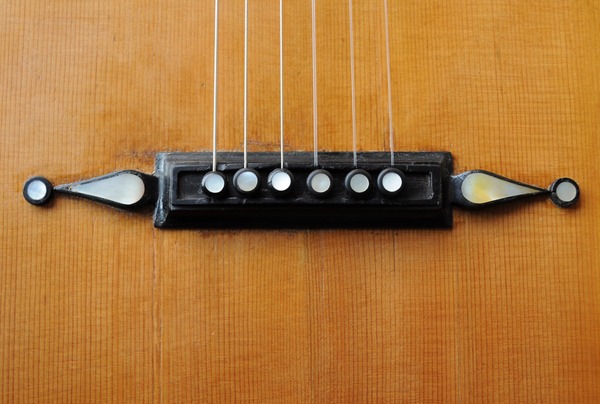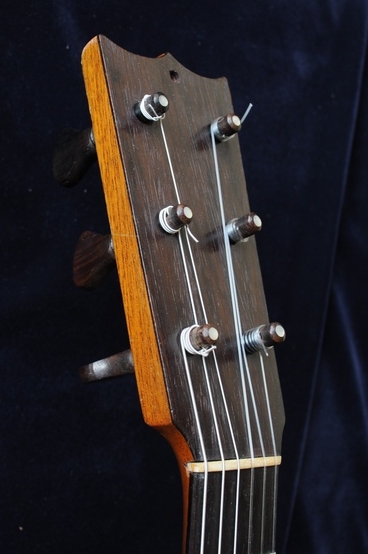-
Louis Panormo is a major luthier in the history of the guitar. He was the luthier of note in the first half of the 20th century in London. Fernando Sor as well as other virtuosos of the century played on his guitars. Like so many of his contemporaries: Lacôte in Paris, Stauffer in Vienna or Fabricator in Naples, Panormo contributed to the evolution of the guitar during a period very rich in innovations. Originally from Palermo, Vicenzo, his father left for France around 1760 to escape a life of poverty. Louis was born in Paris in 1784. Shortly before the French revolution the family moved to London, where Louis became a guitar maker. The guitar shown here was made in 1827 at 26 High Street in London.

Description :
- Back and sides : Brazilian Rosewood
- Top : Spruce
- Fingerboard : Brazilian Rosewood
- Neck : Solid mahogany
- Bridge : Ebony and mother of pearl
Louis Panormo made fan braced guitars in the Spanish tradition. Nonetheless, the bridge with pins attaching the strings directly to the top is closer to the French school. Also, as with French bridges between 1795 and 1825 the strings do not rest on an adjustable bone saddle. This modification only appeared in France around 1820.

Due to the design of internal features, the Panormo guitars are closer to the modern classical guitar than those of his contemporaries such as Lacôte and Stauffer. Contrary to instruments of the French, Italian, and Austrian schools (based on ladder braced systems), Panormo used a fan braced design. It is thanks to this feature that his instruments have a warmer sound with greater sustain. This idea was not exploited by the other schools. Just like a more modern guitar the top is supported by 7 fan braces.

From the 1820’s, he was among the first to include tuning machines on the heads of his instruments as the English musicians did not appreciate the violin style pegs. This guitar seems to be ‘the exception that proves the rule’!

Sylvain BALESTRIERI -Luthier-
24
Nov '24

